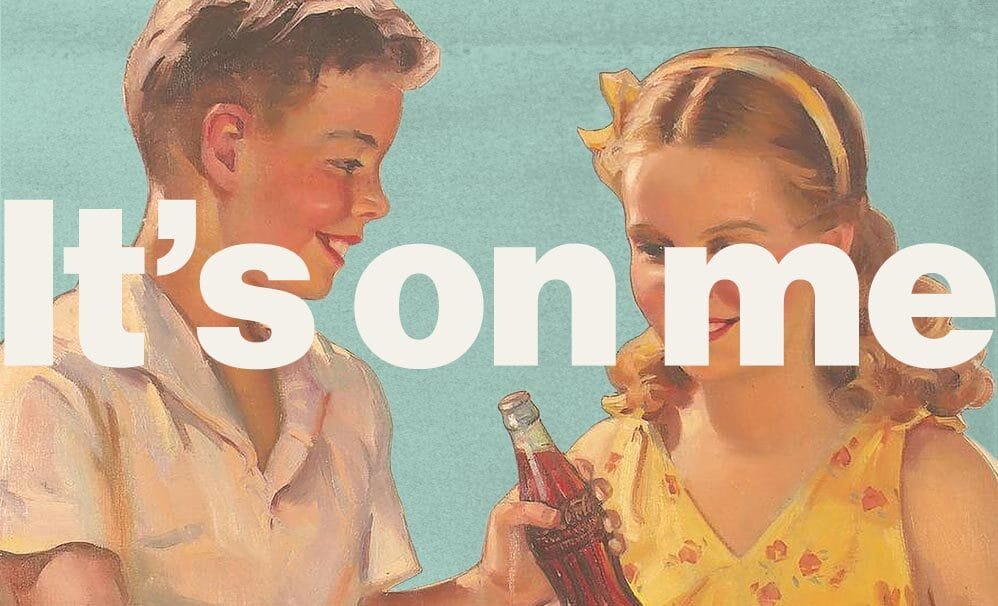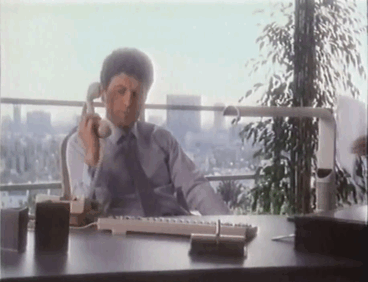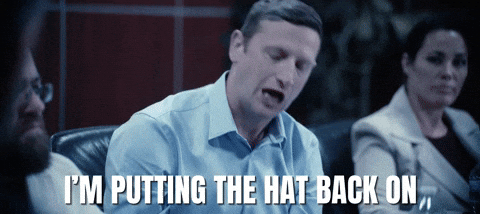- Working Creative
- Posts
- Friends Don't Let Friends Work for Free
Friends Don't Let Friends Work for Free
How to be a better bestie by being a better professional

I find it incredibly difficult to charge friends and family for design work. It's not because I'm a great guy either. Actually kind of the opposite.
There's a pretty wide price range where the dollar amount isn't a huge motivator for me but is still pricey enough to put financial stress on the friend paying.
Low-paying project + stressed client = no thanks. Multiply all that by having a friendship at stake and the whole thing is covered in red flags.
The tempting move is to say "nah I'll do it for free" but ask yourself why you're offering that. Is it because you really want to help your friend or is it because you want to keep them from being able to chase you - on account of you doing them such a big favour?
I had one friend who asked me how much I would charge to design his wedding invites and I said "Absolutely nothing. It's my gift" (I actually meant it too).
He said "No, I insist. I want to be able to push you around."
Friends Withheld Benefits
When you're dealing with homies, things can get a little loose. You might think that doing something on-the-house gives you leeway to stretch timelines, switch up deliverables and take things less seriously in general.
This was my patented move when I was starting out. I actually used to have a line that went:
"Buy me a case of beer and you'll get this sometime within a year".

Sir, people are loving your line about the case of beer
That's horrifying to me now.
(It’s a great little piece of writing but the sentiment should be embarrassing.)
Just because it's not costing your friends anything doesn't mean there aren't stakes for them. They have deadlines to keep. They have other people counting on them. They might even have reputations at stake - that they probably value more than I did back then.
My friend who wanted to push me around had worked with me before and knew how easily no-stakes projects could slide into disarray. Worse still, without stakes, he knew he wouldn’t be able to do anything about it.
When you work for free you rob friends of the ability to hold you accountable. They can't complain because hey, it's free.
So should you charge your friends?
Yes. Maybe not your full rate. Maybe not even cash. But set the stakes so that you both take the project seriously.
I’d Like to Show You My Special Hat
Tell them upfront: "When we're working on this project, I'm going to put on my professional hat. That means I'll be more business-y about things like feedback and deadlines than I am when we're just hanging out."
This gives both of you permission to be more businesslike without it feeling personal.

It’s not a distraction
1. Establish Real Stakes (Even If It's Not Money)
If cash feels weird, try these alternatives:
A nice dinner or lunch
Tickets to something you'd both enjoy
A favour (help moving, dog-sitting)
Their expertise (maybe you can barter services)
The point isn't the amount - it's that there's something meaningful on the line for both of you.
2. Set the Same Boundaries You Do With Any Client
Give them a timeline and stick to it
Schedule actual meetings, don't just text about it
Send progress updates on a schedule
Define what "done" looks like upfront
Set revision limits (yes, even for friends)
Write it down. Even if it's just a simple email confirming what you discussed.
When you treat their project with the same professionalism you give any client, it not only honours how important the project is to your friend but it keeps you in line as well.
And if you start to slip, let them push you around a little.
That's exactly what good friends should be able to do.
Takeaway:
The best favour you can do a friend is treating their project seriously - so charge something. Anything. Just make it matter to both of you.
The One-Question Interview
 | Luke Norrad Luke is a Halifax-born designer and serves on the Board of Directors for the Canadian Typography Archives. Luke specializes in custom lettering and works with clients ranging from clothing brands and skateboard companies to museums and government agencies. |
Working Creative: What's the biggest mistake creatives make when working with friends?
Luke Norrad: In my personal experience (as well as seeing what other creative friends have dealt with) any time you don’t set the terms clearly up front it can lead to problems. This rule applies to paying clients as well.
Establishing the budget, deliverables, timeline and revisions will give both parties a realistic idea of what to expect and helps to set boundaries - which may not always be readily observed with a friend.
Trying to sort this out during or after the work process can be much more complicated and stressful. It's up to you whether you want to work for free as a favour, but I find that even having a discounted fee helps you and the client to take the work more seriously.
I would consider that in most cases you wouldn't expect someone else to work for free so charging something for your time is generally a good idea unless there's a valid reason not to.
Clarity and transparency in the form of a signed agreement up front will always help you!
Bonus Question:
Working Creative: What do you imagine/picture/visualize when you hear the words “Working Creative”?
Luke Norrad: I find the word creative as a title has lost some of its lustre from overuse over the years and feels so generalized for me that it loses meaning. It reminds me of those job ads that ask you to specialize in 40 different areas of work, so I picture a clipart person with eight arms holding a camera, a mouse, pencil, video camera, paint brush, tablet, etc. :)
Parting Thought
I’ve grown as a professional and I’ve since come to take friend projects much more seriously. I mean, we should all take the projects of our friends seriously because it’s part of being a decent person.
But maybe you have no goals to become a decent person.
In that case, you should consider that sometimes your friends become successful or encounter successful people looking for your kind of work. Being a good friend can be good business.
The wedding invites came out amazing btw. Didn’t even have to get pushed around. And those invites were the first of many projects for a friend who became a big part of supporting the growth of my career.
That’s the kind of push we all need.
About the Author: Martin Gomez is a creative director and the co-founder of Working Creative. He is a former agency owner, design school professor, and as a freelancer, has worked with household brands for Canada’s top marketing agencies.
